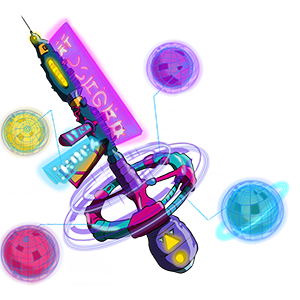As the gaming industry continues to expand globally, the collaboration between game developers and translators—or localizers—becomes essential. This partnership is more than just translating text; it involves carefully adapting the game’s essence to resonate with diverse audiences worldwide.
By working together, developers and translators ensure that games are accessible and engaging for players from various cultural backgrounds, which can significantly boost a game’s reach and appeal in international markets.

Establishing Partnerships Early in Development
To maximize the impact of video game localization, developers should involve translators early in the development process. This proactive approach helps address cultural and language nuances before they become challenging to correct, creating a more refined and immersive experience for players everywhere.
The benefits of early collaboration include:
- Integration of localization considerations: When translators are brought on board at the start, they can provide insights that directly influence design and narrative elements, making localization smoother and less intrusive. They may, for example, suggest changes to characters, storylines, or visual elements to avoid potential cultural missteps and ensure a cohesive and natural feel.
- Reduction of revisions: Addressing localization needs early on significantly reduces the need for major edits post-development. When localization is an afterthought, it often requires substantial reworking to adapt in-game content, increasing both costs and project timelines. By involving localizers early, developers can identify and address issues in real time, saving both time and resources in the long run.
- Enhanced cultural relevance: Translators understand regional nuances that are often overlooked by developers. They can tailor in-game content to reflect local customs, humor, and preferences, increasing the likelihood that players find the game relatable and enjoyable. This approach strengthens a game’s reputation as culturally considerate and adds to its appeal, especially in regions with strong local identities.

The Outcome: Leveraging Expertise
Ongoing, open communication between developers and translators is crucial for effective collaboration. By working closely with localizers, developers gain valuable insights into the cultural nuances that make a game resonate with players worldwide. Similarly, translators gain a deeper understanding of the game’s story, mechanics, and intended tone, helping them craft accurate, culturally sensitive translations. This mutual exchange of expertise creates a well-rounded product, allowing the game to maintain its intended impact while connecting with players on a personal level.
Futureproofing with Localization Kits
Another advantage of early collaboration is the development of a localization kit or lockit. This essential toolkit serves as a guide for future localization efforts by documenting the game’s narrative structure, character nuances, technical terms, and style guidelines. A well-crafted lockit ensures consistency in translation quality across various regions and helps prevent future misunderstandings.

The Takeaway
Involving translators from the beginning is a game-changer in the localization process. By fostering an early and continuous partnership, game developers can create products that are culturally relevant, linguistically accurate, and globally appealing. As the gaming industry grows, the importance of these partnerships will only increase, making localization an integral part of the development process rather than an afterthought.



